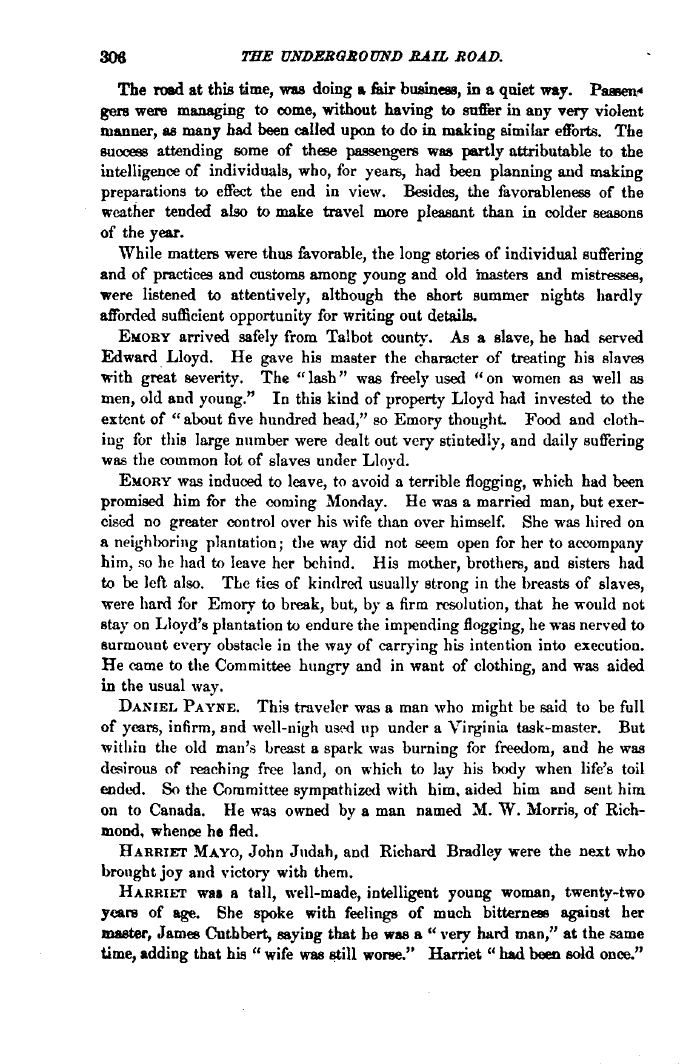 |
||||
 |
||||
| 306 THE UNDERGROUND RAIL ROAD. The road at this time, was doing a fair business, in a quiet way. Paasen* gere were managing to come, without having to safer in any very violent manner, as many bad been called upon to do in making similar efforts. The success attending some of these passengers was partly attributable to the intelligence of individuals, who, for years, had been planning and making preparations to effect the end in view. Besides, the favorableness of the weather tended also to make travel more pleasant than in colder seasons of the year. While matters were thus favorable, the long stories of individual suffering and of practices and customs among young and old masters and mistresses, were listened to attentively, although the short summer nights hardly afforded sufficient opportunity for writing out details. EMORY arrived safely from Talbot county. As a slave, he had served Edward Lloyd. He gave his master the character of treating his slaves with great severity. The " lash" was freely used " on women as well as men, old and young." In this kind of property Lloyd had invested to the extent of " about five hundred head," so Emory thought Food and clothing for this large number were dealt out very stintedly, and daily suffering was the common lot of slaves under Lloyd. EMORY was induced to leave, to avoid a terrible flogging, which had been promised him for the coming Monday. He was a married man, but exercised no greater control over his wife than over himself. She was hired on a neighl>oring plantation; the way did not seem open for her to accompany him, so he had to leave her behind. His mother, brothers, and sisters had to be left also. The ties of kindred usually strong in the breasts of slaves, •were hard for Emory to break, but, by a firm resolution, that he would not stay on Lloyd's plantation to endure the impending flogging, he was nerved to surmount every obstacle in the way of carrying his intention into execution. He came to the Committee hungry and in want of clothing, and was aided in the usual way. DANIEL PAYNE. This traveler was a man who might be said to be full of years, infirm, and well-nigh used up under a Virginia task-master. But within the old man's breast a spark was burning for freedom, and he was desirous of reaching free land, on which to lay his body when life's toil ended. So the Committee sympathized with him, aided him and sent him. on to Canada. He was owned by a man named M. W. Morris, of Richmond, whence he fled. HARRIET MAYO, John Judah, and Richard Bradley were the next who brought joy and victory with them. HARRIET was a tall, well-made, intelligent young woman, twenty-two years of age. She spoke with feelings of mach bitterness against her master, James Cntbbert, saying that be was a " very hard man," at the same time, adding that his " wife was still worse." Harriet " had been sold once." |